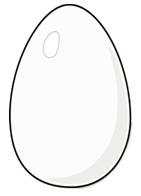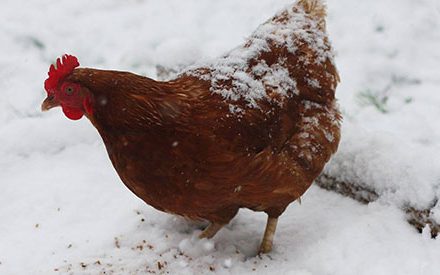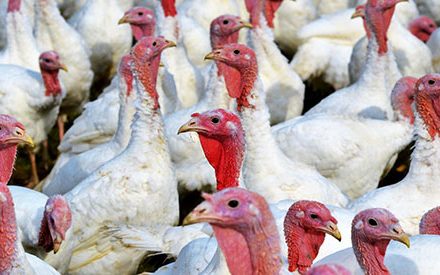Does Floating an Egg Test Egg Quality?
 It has been suggested that putting an egg in water can determine if it’s of good quality or not. If it doesn’t float, it’s “good,” but if it floats, it’s “bad.” This test really measures the size of the air cell inside the egg. As an egg ages, water evaporates through the shell, and the air cell gets larger. Storage conditions (esp. humidity) and shell thickness affect the rate at which moisture will evaporate. So, determining if the egg floats mostly tests the age of the egg.
It has been suggested that putting an egg in water can determine if it’s of good quality or not. If it doesn’t float, it’s “good,” but if it floats, it’s “bad.” This test really measures the size of the air cell inside the egg. As an egg ages, water evaporates through the shell, and the air cell gets larger. Storage conditions (esp. humidity) and shell thickness affect the rate at which moisture will evaporate. So, determining if the egg floats mostly tests the age of the egg.
Egg Quality
Other measures of internal egg quality. Blood or meat spots are occasionally found in eggs. These are usually a bit of tissue or blood from the ovary or oviduct of the hen that got incorporated as the egg was formed. It is very unlikely that they would be from embryonic development, as eggs must be incubated for about 2 days at 100° F before blood starts to form. Nearly all commercial eggs are infertile, as well.
Age of an Egg
Albumen height is another measure of quality that has been used. A fresh egg will have thick whites and a tall yolk. As the egg ages, the whites get thinner and the yolk gets flatter. This is also affected by storage temperature – aging occurs much more quickly in warm temperatures than when the egg is refrigerated.
Candling
Eggs can be candled, by shining a bright light through the shell. The size of the air cell and blood spots can be visualized without breaking the egg. You can get some of idea of the albumen thickness, too, by candling.




 Life Cycle of a Laying Hen
Life Cycle of a Laying Hen Preparing for Winter
Preparing for Winter Avian Influenza and Biosecurity – 2020
Avian Influenza and Biosecurity – 2020 The "Chicken of Tomorrow"
The "Chicken of Tomorrow"